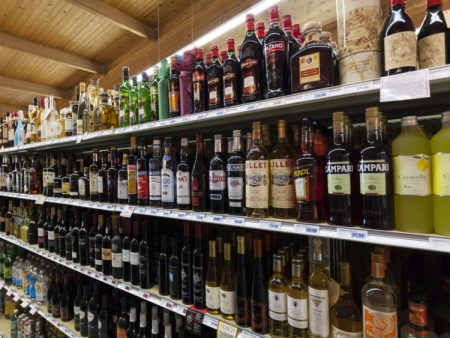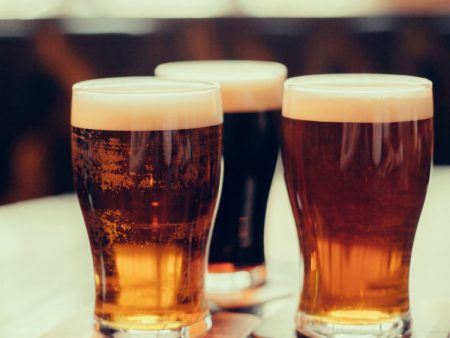Source: news.sky.com
Author: Paul Kelso, Health Correspondent
The alcohol industry is misleading the public by downplaying the risk of cancer through similar tactics to the tobacco industry, researchers say.
A study led by the London School of Hygiene and Tropical Medicine (LSHTM) and Sweden’s Karolinska Institutet found the industry is using “denying, distortion and distraction” strategies to minimise evidence.
Researchers analysed information relating to cancer on the websites and documents of 28 alcohol industry organisations between September and December last year, finding that most showed “some sort of distortion or misrepresentation” of evidence.
The industry most commonly presented the relationship between alcohol and cancer as highly complex, implying there was no evidence of a consistent or independent link, according to the study.
Other tactics included denying that any relationship existed or claiming that there was no risk for light or moderate drinking, as well as presenting alcohol as just one risk among many.
Alcohol consumption is an established risk factor for a range of cancers, including oral cavity, liver, breast and colorectal cancers, and accounts for about 4% of new cancer cases annually in the UK.
The latest British government advice on alcohol, issued last year, makes an explicit link between cancer and alcohol.
It states: “The risk of developing a range of health problems (including cancers of the mouth, throat and breast) increases the more you drink on a regular basis.”
During the consultation phase the alcohol industry challenged the link with cancer.
The authors of the report, published in the Drug and Alcohol Review journal, said it was important to highlight that those who drink within the recommended guidelines – not more than 14 units a week for both men and women – “shouldn’t be too concerned when it comes to cancer”.
Mark Petticrew, Professor of Public Health at the LSHTM and the study’s lead author, told Sky News: “The information, on balance, across organisations we looked at seems to be quite extensively inaccurate or misrepresents the evidence.
“The evidence linking alcohol consumption and cancer is reasonably clear and has firmed up over recent years. The information on these websites, given out by alcohol bodies, appears to be not representing that evidence base, which is quite consistent.
“We know the tobacco industry attempted to confuse the relationship between lung cancer and smoking and put out a lot of very distracting information. We see similar types of argument use in these alcohol industry websites.”
Institute of Alcohol Studies chief executive Katherine Brown said: “This report shows that, like the tobacco industry before them, alcohol companies are misleading consumers about the evidence linking their products to cancer.
“We cannot rely on a profit-driven industry to promote public health. Consumers have a right to know the truth about alcohol and cancer, so they can make fully informed decisions about their drinking.”
The alcohol industry denied the report’s findings.
Drinkaware, a charitable trust funded by drinks manufacturers, said: “Its recent review of Drinkaware’s cancer information, which is extensive, has confirmed that the information we are providing accurately reflects the most recent research evidence.”
Henry Ashworth, president of the International Alliance for Responsible Drinking, said: “We do not agree with the conclusions reached in this paper. We believe in sharing the current state of the scientific evidence and stand by the information that we publish on drinking and health.”
Chris Snowdon, head of lifestyle economics at the Institute of Economic Affairs, said: “This is a diatribe disguised as a study that seeks to create a false narrative in which businesses always lie and anti-alcohol campaigners always tell the truth.
“We need to have sensible and evidence-based information about the risks of alcohol. The risks associated with cancer are not the biggest risks when it comes to drinking, the bigger risks are to do with violence, drink-driving and liver cirrhosis.
“It’s not cancer, so I’m not convinced that actually people understood fully what the risks associated with drinking are in terms of cancer when it doesn’t have an effect on people’s consumption of it at all.”



Leave A Comment
You must be logged in to post a comment.